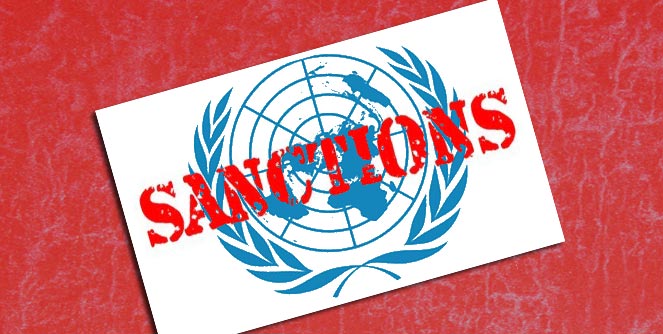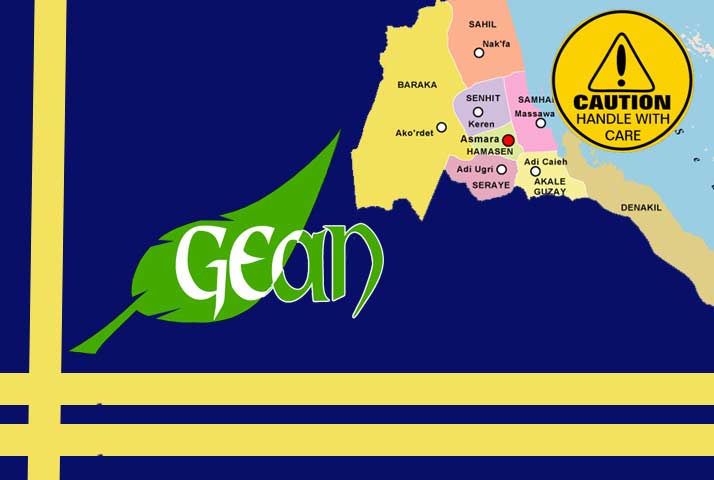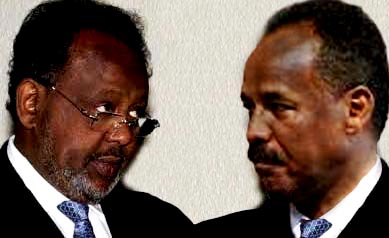Djibouti Objects to the Lifting Of UN Sanctions on Eritrea

In a press statement he released on July 10, 2018, the Council President Olof Skoog (Sweden) stated, “The members of the Security Council commended the signing of the Joint Declaration of Peace and Friendship on 9 July 2018 by the President of the State of Eritrea, Isaias Afwerki, and the Prime Minister of the Federal Democratic Republic of Ethiopia, Dr. Abiy Ahmed.
The statement indicated, that, “The members of the Security Council commended the signing of the Joint Declaration of Peace and Friendship on 9 July 2018 by the President of the State of Eritrea, Isaias Afwerki, and the Prime Minister of the Federal Democratic Republic of Ethiopia, Dr. Abiy Ahmed. “
The Ethiopian Prime minister Dr. Abiy Ahmed had promised to help lift the UN sanctions imposed on Eritrea for its alleged role in destabilizing the region by supporting the Somali Al Shabab Group, hosting armed Ethiopian opposition groups, and for its alleged aggression against Djibouti.
In its last report, the Somalia-Eritrea Monitoring Group under the leadership of Kairat Umarov had reported that after four years of investigations, it could not find evidence that Eritrea was still supporting the Al Shabab Group.
At the moment, it seems several Ethiopian armed groups that Eritrea hosted have returned to Ethiopia while others are about to leave the country to be legitimately involved in their country’s political affairs.
As he promised, ten days ago the Ethiopian prime minister handed the visiting UN Chief Antonio Guterres, an official letter requesting the UN to lift the sanctions imposed on Eritrea. Guterres reportedly said, “ the Security Council would soon lift the sanctions.”
According to diplomatic sources in New York, in the last meeting of the Security Council, Djibouti, reminded the Council that the reasons of the sanctions were not the Ethiopian Eritrea border problems, and the sanctions should only be lifted or continued for the reasons they were imposed.
Djibouti has the support of the African Block, including Equatorial Guinea and Ivory Coast, and Somalia,
At the same time, China, Britain, and the USA voted against lifting the sanctions while Sweden, which is heading the Security Council, lightly lined up with Djibouti.
The position of China is believed to be driven by its investments in the port of Gwadar in Western Pakistan, a port that is expected to compete with Jebel Ali and Dubai in the UAE.
Since China started the Gwadar project, the UAE, using its spearhead entity Dubai Ports World, has been expanding in the Red Sea and the Horn of Africa to ameliorate the choke that threatens it Ports. Gwadar will be connected to the Chinese Silk Road that cuts through China, and further connects to a railroad system that extends to Western Europe. The railways will also connect Gowdar to the bustling international shipping routes that crisscross the Soth China a, the Indian Ocean, the Arabian Sea, and the Red Sea.
Gowdar is located a short distance east of the entrance to the straits of Hurmuz and the Arabian Gulf, the only sea passage for Iraq, Kuwait, Qatar, Bahrain, and the UAE. According to open democracy. net, Gowdar has recently “caused a silent economic war in the Gulf of Oman between two groups of countries. Pakistan, China and Qatar on one side. India and the UAE on the other.”
China is also believed to be concerned about the fate of its huge investments in Djibouti and the Horn of Africa, where it sees the UAE–which has occupied Yemen, established a presence in Asab, Eritrea, and Somaliland–as a major distraction to its plans for Africa which it has been nurturing for decades.



Awate Forum